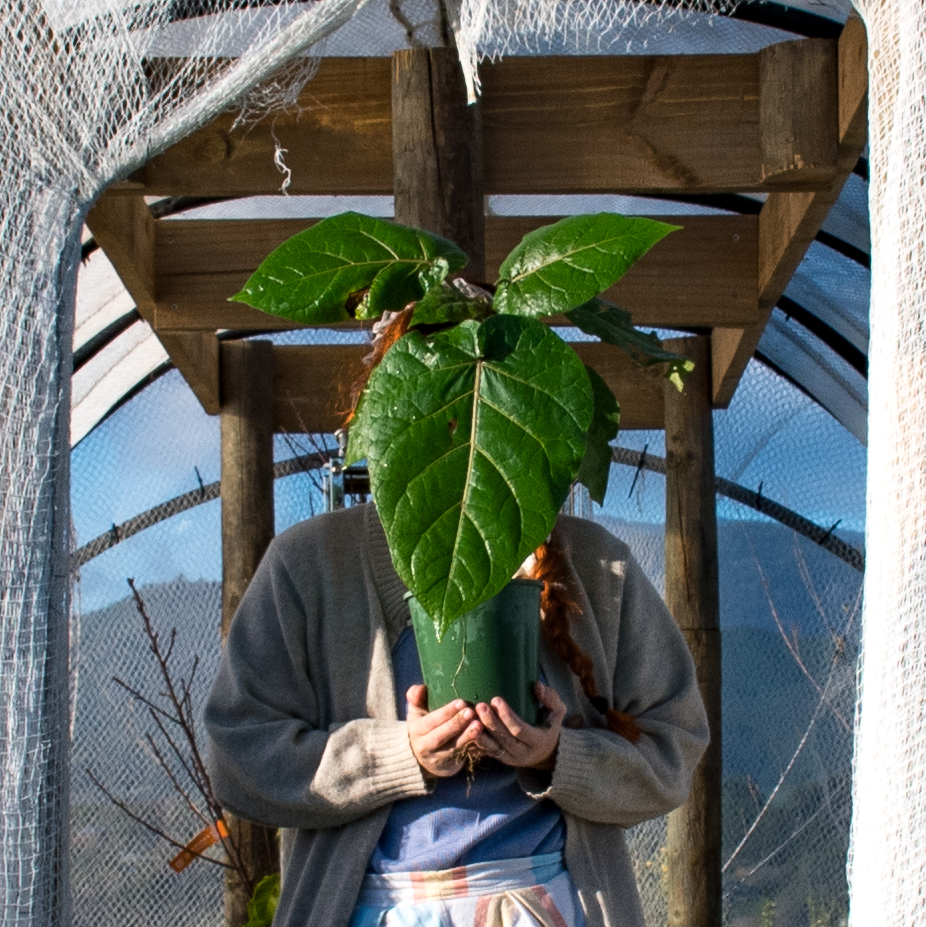I like unusual shirts and recently took it upon myself and my wife’s sewing machine to start making my own shirts.
I ran into this rayon challis in the fabric store and decided I should have a tropical shirt of it. Converting my pattern to accommodate what I’ve heard about rayon challis involved turning the side seams and arm seams into french seams (after adding to the seam allowance on the pattern).
Surprisingly, it fits perfectly. It’s not perfect by any means, but it’s the first shirt of this fabric type that I’ve ever owned.

I’d wear it

Looks pretty good! How long did that take?
To be completely honest, I have no idea how many man hours this one took.
In general, I can complete this pattern with cotton fabric in a couple days of hobby work, but this fabric is a bit slippery and I definitely spent twice as much time preparing everything to mitigate that. Plus this was my first time doing French seams

It looks great! I love the fabric. I just started making clothes for myself and there’s something so satisfying about it even if they don’t always turn out perfect.

Looks amazing! This makes me want to borrow my mother in law’s sewing machine
In my opinion, if you are interested you should.
It’s very satisfying to wear a shirt that you created and that no one else can even own because you made it. Just make sure you watch some tutorial videos and don’t let fear of failure get the best of you
If you are worried about losing the fabrics value from messing up, consider picking up some super cheap cotton muslin to practice on. Near me it is as low as $5 a yard, So a practice shirt could be 10 to $15 worth of muslin

Great pattern!

I think you should be very proud! I have tried to make my own garments but always seam to mess up somewhere and then lose steam. I have found making quilts better suits my abilities but I would love to make a few boxy/camper style shirts for myself sometime.
Thanks!
I really think a lot of it comes down to using a clearly written pattern.
If you revisit clothing, I hope you find a pattern that accommodates your personal working style

Wow this looks awesome! I got a sewing machine to do minor alterations so clothes will fit better but I’m nowhere skilled enough to create a shirt from scratch!
You might be surprised at how well it can go with a well made pattern!
I like wardrobe by me’s patterns (this one is their tropical shirt pattern).
A lot of their patterns also come with process videos as well

Thanks! I was wondering about the pattern.

I really like your fabric choice! I think it turned out really nice. The french seams was a good idea.

This is amazing! Any tips on getting started as a beginner?
The biggest thing is to not be afraid of mistakes in my opinion. You will learn more about how constructions go together by doing them, making mistakes, reevaluating your mental model, and fixing those mistakes than you will by paralyzing yourself with fear.
Find a reasonable first pattern and make it several times. Then find a second pattern that takes skills from the first and adds others. In this way, you grow your skill set to accomplish the things you want to do.
Once you reach that point, try different materials. Learn about how different materials need to be finished, and use that knowledge to modify the patterns you already know. French seams are an excellent tool for this.
At this point, the world is your oyster. I’m currently working my way through a few new patterns, and a wild variety of fabrics. It’s very satisfying, and I hope you enjoy it as much as I am.
This was my fourth shirt, but I recently posted my ninth. I’ve come a long way, and I still make a bunch of little dumb mistakes. It’s fine, it has never ruined one of my shirts.
Oh and one more thing! When you buy a pattern many will be printed on tissue paper, and will have the lines printed for ever available size. It’s expensive, but I have grown to love swedish tracing paper. It’s not actually “paper”, and the idea is that you trace your intended size lines of a pattern onto it, cut the panels out of the swedish tracing paper, and now you have a more durable way to repeat the exact same sewing pattern with whatever fabric you find yourself with. By doing this, you can keep the purchased tissue pattern as an archive. Maybe you need to retrace something eventually, or maybe you want to make the same thing in a different size one day. Regardless of why, you can’t do that if you cut your intended size out of the tissue pattern.

I see that pattern matching, and I’m impressed! Well done
